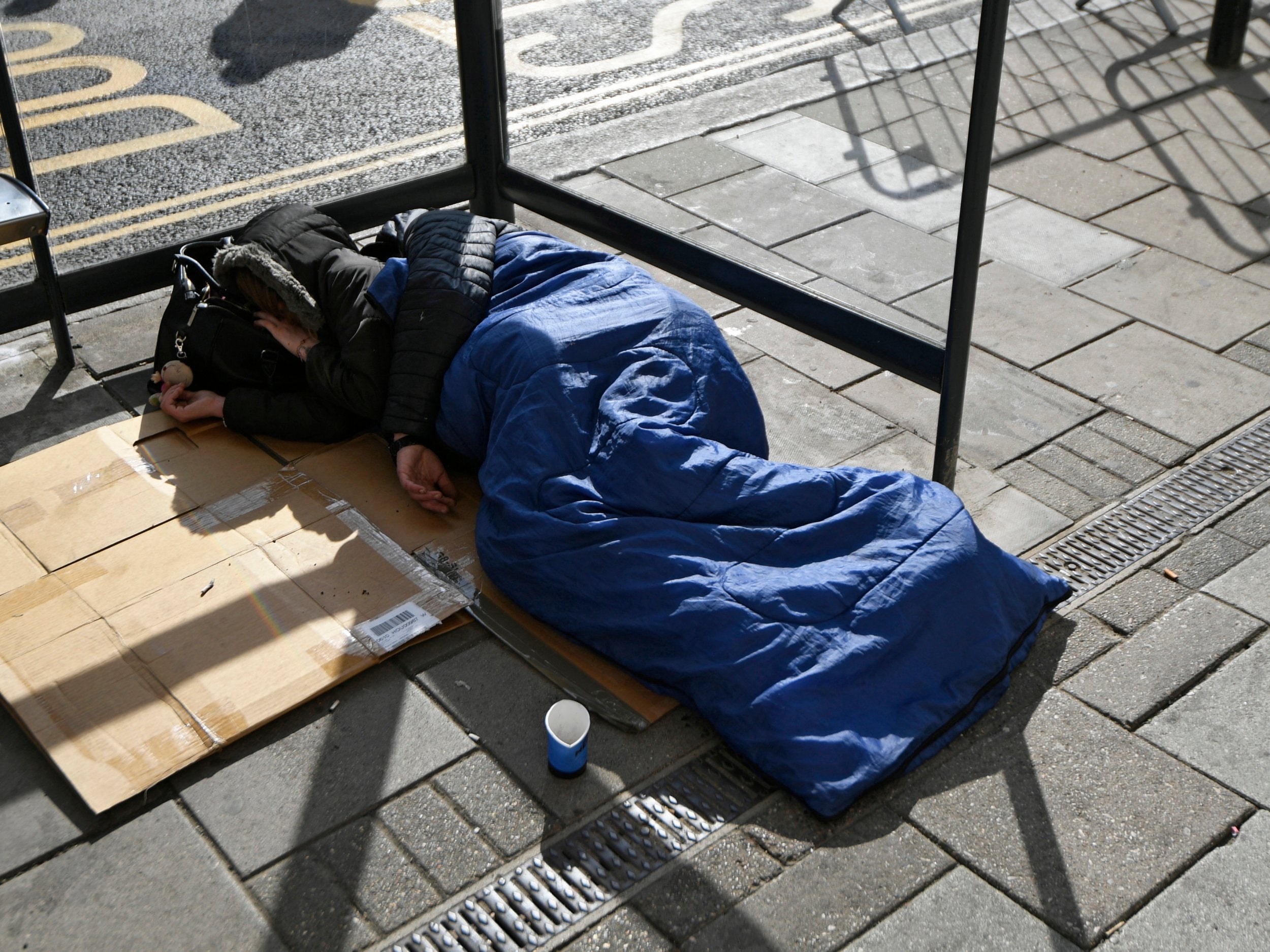Volunteers tie hot water bottles to trees to help homeless people stay warm during winter
Each bottle comes with directions to local businesses who will provide hot water for rough sleepers

Your support helps us to tell the story
From reproductive rights to climate change to Big Tech, The Independent is on the ground when the story is developing. Whether it's investigating the financials of Elon Musk's pro-Trump PAC or producing our latest documentary, 'The A Word', which shines a light on the American women fighting for reproductive rights, we know how important it is to parse out the facts from the messaging.
At such a critical moment in US history, we need reporters on the ground. Your donation allows us to keep sending journalists to speak to both sides of the story.
The Independent is trusted by Americans across the entire political spectrum. And unlike many other quality news outlets, we choose not to lock Americans out of our reporting and analysis with paywalls. We believe quality journalism should be available to everyone, paid for by those who can afford it.
Your support makes all the difference.If you live in one of the UK’s major cities, you might be surprised to see hot water bottles hanging from trees this year.
But although they look like something from a local art project, the bottles are a smart idea to help keep homeless people warm during cold winter months.
Notes attached to the empty bottles tell people who are sleeping rough about businesses who have agreed to fill them with hot water as part of the Hot Water Bottle Network.
Hot water bottles are donated by members of the public and come with a note showing which businesses have signed up to the project and directions to find them.
The project is led by community volunteers and has groups across the country in Bristol, Bath, Leicester, Manchester and Brighton, where it started in 2015. Groups in Nottingham, Cardiff and London are also being set up.
Pete Wentland, who was once homeless himself, set up the group in Bristol and is now working with groups in Cardiff and Bath.
“It’s already cold on the streets. We are taking this action as an emergency measure to try to make the winter that tiny bit more bearable for those who face the worst brunt of it,” he told The i.
“The difference in having a hot water bottle can be the difference between life and death.”
In Bristol, hot water bottles are being given out to help people in temporary accommodation as well as those who are sleeping on the street.
By organising with local businesses, the Hot Water Bottle Network hope to avoid bottles going to waste because people cannot refill them.
It has not been easy work for every group. In February, the Manchester group said they were unable to find any businesses to agree to be refill locations and had to find other venues, such as a local McDonalds, where bottles could be refilled.
Groups in Bath, Bristol and Cardiff said they were inspired by seeing the work of the Hot Water Bottle Network in other cities.
In a statement on Facebook, the Cardiff group said: “In encouraging local businesses to help rough sleepers we hope for a breaking down of the barriers that separate us through opening doors and standing for unity within our community.”
The group advised those who do not have a hot water bottle or cannot afford one to ask for them as a gift from family and friends.
Anyone who wants to get involved with the network can find details on each group's Facebook page.
Earlier this year, official statistics showed that rough sleeping in England had increased for a seventh consecutive year.
In August, the government announced a £100m fund to eradicate rough sleeping within the next decade.
However, James Brokenshire, the minister for housing, communities and local government, revealed the fund did not contain new money.
Mr Brokenshire admitted it consisted of money which was already being spent on rough sleeping initiatives or had been “reprioritised” from existing budgets in the department.
Join our commenting forum
Join thought-provoking conversations, follow other Independent readers and see their replies
Comments